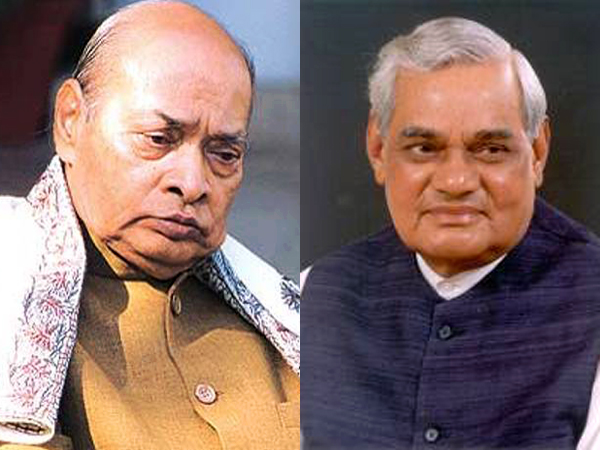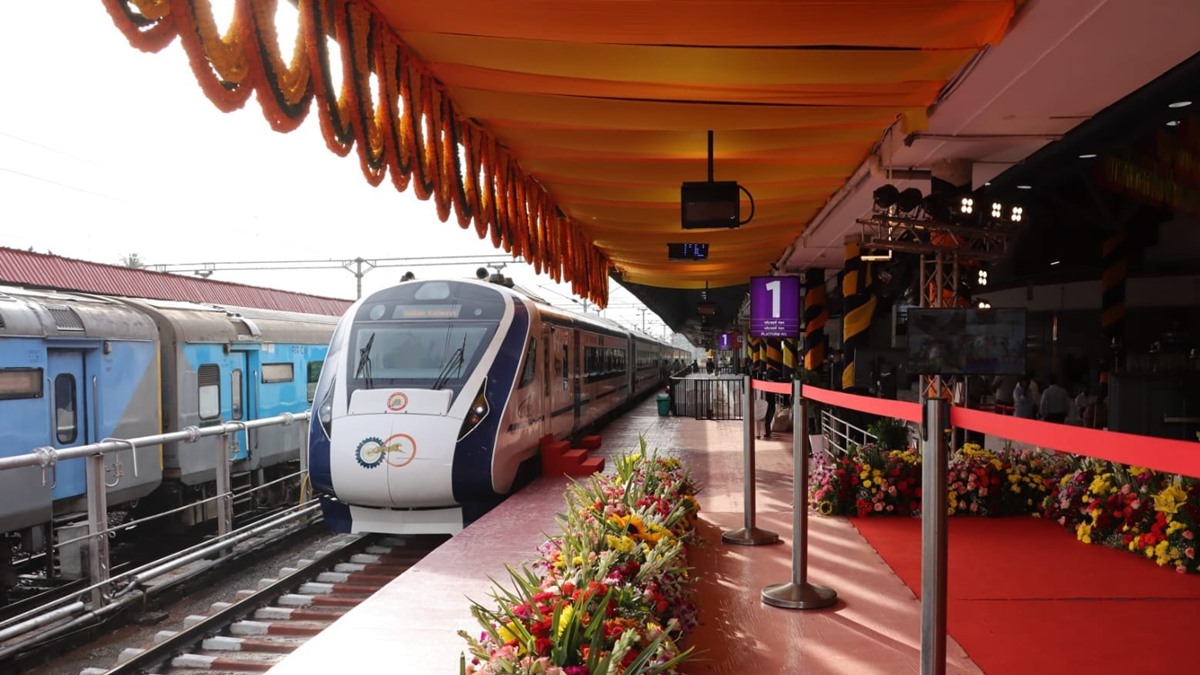
Rao handed over onus to Vajpayee, can today's leaders learn?
Two contrasting news struck me. One is the relentless bickering between the Congress and the BJP over every other issue. And the other, the recent revelation by former President of India APJ Abdul Kalam that late Prime Minister PV Narasimha Rao almost went ahead with the nuclear tests in 1996 but later handed over the onus to his successor, Atal Bihari Vajpayee, after suffering an electoral debacle.
Act
of
statesmanship,
something
terribly
missing
today
Whether Rao was discouraged by the poll loss or whether he was put under considerable pressure by the west to retreat from carrying out his plan is for the insiders to reveal. But the fact that Rao treated the issue as a national issue above partisan politics demands words of appreciation. It was a great example of statesmanship, rarely seen in today's politics.

Why can't a similar gesture be expected from the leaders of the current generation? Can we ever expect a Manmohan Singh handing over a robust policy on foreign direct investment to Narendra Modi, in case the latter becomes the Prime Minister in 2014? Hard to imagine.
As far as India's nuclear programme is concerned, successive Congress governments have treated the issue consistently since the days of Indira Gandhi. While Indira Gandhi led the nation in the Pokhran-I blasts in 1974 and restarted the development programme of the weapons after Morarji Desai stalled it, the credit to assemble the weapon goes to her successor, Rajiv Gandhi. Rao was the man who operationalised it on a priority basis. Indira Gandhi had also wanted to test an improved nuclear weapon system in 1983.
Rao never shelved the national interest despite defeat in election
Rao's greatness lied in the fact that he did not shelf the initiative in the face of internal and external challenges. It was in 1991 when Rao, despite leading a minority government, decided to adopt a posture of what experts call "recessed deterrence" in order to keep components of nuclear devices ready at diverse locations so that they could be deployed as per the strategic need. In Dec 1995, his government wanted to go ahead with the nuclear test but US satellites spotted the preparations and the American media also exposed it.
But Rao never gave up his dream and kept Vajpayee in the loop about the progress in the country's nuclear programme. It was evident from the fact that the BJP did not create any ruckus on the issue in the parliament even though the general impression was that India's nuclear ambitions had been crippled under US pressure. Can such political understanding between two rival political camps be expected today?
I felt obliged only to Atalji, said Rao
Rao's statesmanship also became evident when prominent strategic affairs analyst K Subrahmanyam had asked the former whether he owed it to the country and the future generations to give his account on the evolution of a nuclear policy. Rao had said he felt obliged just to one person and it was Atal Bihari Vajpayee, his successor. He had also briefed Vajpayee on the matter, something which Kalam recently revealed.
The strategic affairs expert said the Kargil Committee had sought an explanation from Rao about the cut in defence budget during his time. Rao said it was done because the nuclear deterrent mechanism was under development and that was the priority of his government. He also said how the nuclear arsenal was operationalised during his days as the PM.
Rao did not object to give his account
Rao did not object to his account on the progress of nuclear programme during his premiership for it is normal by today's standards that politicians do not want their credit to be hijacked by somebody else. It is understandable why the NDA did not show any interest in publishing the annexures for Rao's account could have diluted the BJP's claim for a nuclear weapon development. But why did the UPA government led by Rao's own party not show interest in releasing them?
It is very important for the Congress today to learn Rao's legacy instead of naming civic projects and hospitals after Jawaharlal Nehru and his successors. It is unfortunate that the man, who had striven towards economic liberalisation, nuclear programme and charting fresh routes in India's foreign policy affairs, has been so conveniently forgotten by his own part. Did the party loyalists recall the contribution of Rao even once at the recent Jaipur conclave? We have two political camps today indulging in provocative politics both in the parliament and outside and they do not even care to put the nation's interest at peril. Can they wait for a moment and look back at history to see how Rao and Vajpayee handled a far more important issue with an immense maturity?
For the current generation, 1996 was a watershed despite the fact that Rao could not go ahead with his N-tests. It was a year when one statesman handed over a responsibility of national importance to his successor, also another statesman. Politics was a continuity then. We have gone a long way down.


 Click it and Unblock the Notifications
Click it and Unblock the Notifications
































